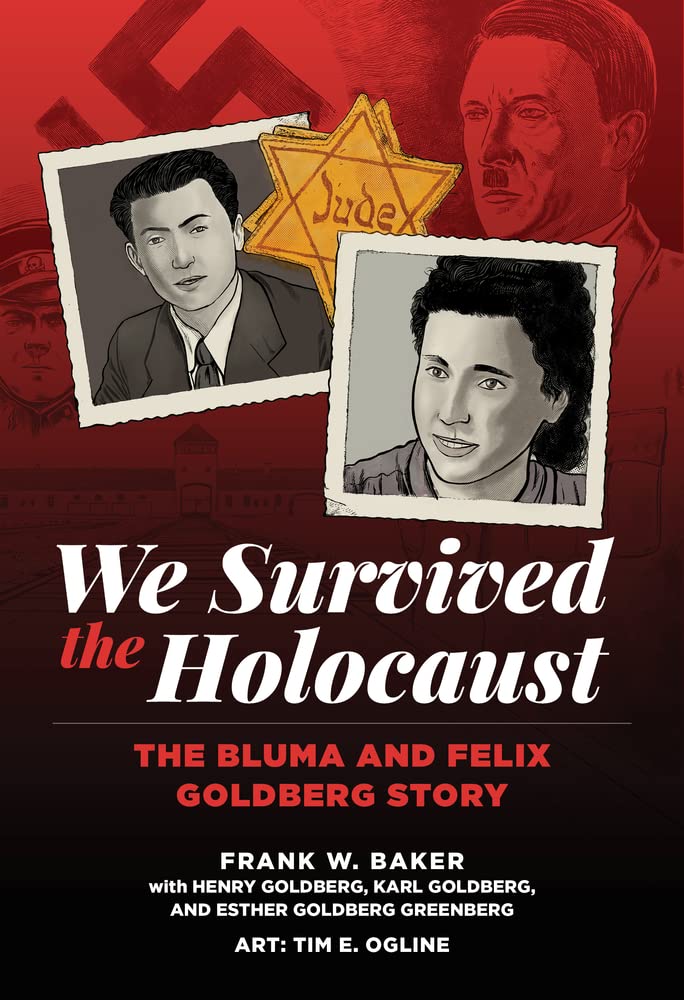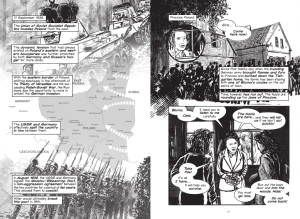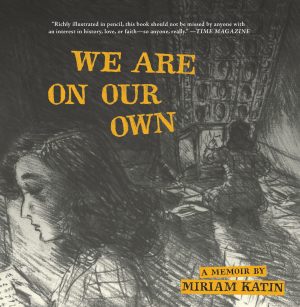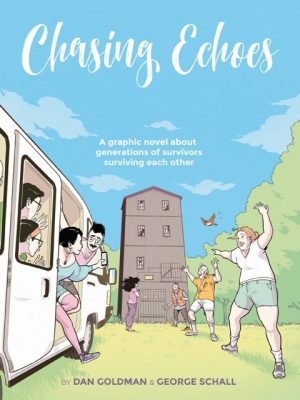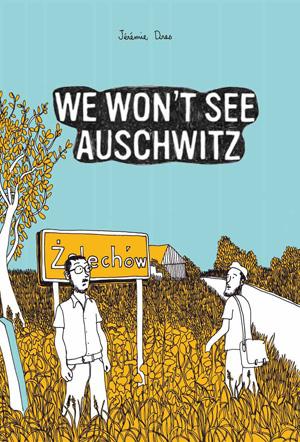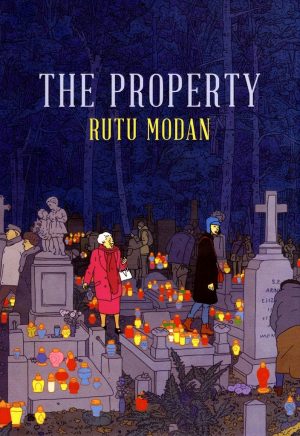Review by Ian Keogh
Education consultant Frank W. Baker was handed the script of a speech Felix Goldberg made detailing how he and his wife survived the World War II extermination programme the Nazis instituted for the Jewish people. The story can be read in text form here, with accompanying photographs and notes from the Goldberg family, but Baker felt knowledge about the Holocaust was lacking among younger people, never mind being challenged as untrue, and a graphic novel would bring what the Goldbergs went through to a wider audience.
A brief present day remembrance set after Felix and Bluma’s deaths precedes their stories told against the backdrop of political events affecting Europe. Both born in Poland, Felix was eight years older than Bluma who was only fourteen when World War II began.
While the Goldbergs’ story is fully realised, artist Tim E. Ogline might have been given a bit more respect for his contribution. He’s named on the cover, but it’s not until his biography on page 124 that he’s named again, and we learn he co-plotted We Survived the Holocaust. For someone not known to the comic reading public he’s astonishingly good. His precise and thoughtfully composed montage illustrations enable historical complexity to be efficiently contracted, with the eye always guided where necessary. Photo reference is obviously used to recreate people, but Ogline manages to avoid the stiffness of movement this can generate, and his drawings are detailed and cinematic, their quality ensuring an audience.
While the art is restrained, the script starkly details years of horror ranging from daily indignities to the grim tasks Jewish prisoners carried out under fear of execution. Death could just as easily result from starvation level sustenance or illness, while women faced extra torment. The adventurous Felix escaped his initial transportation to a concentration camp, and was later among the prisoners forcibly marched 170 miles in their scant clothing and bare feet. His wartime experiences include meeting both the infamous Josef Mengele, and later American President Dwight Eisnhower. For Bluma and her sister Cela the slave labour in an aircraft factory was actually preferable to their previous conditions.
A few moments needed greater explanation. Bluma notes remembering throughout her life the name of the first American she met, yet the soldier remains anonymous here, but overall detail is prioritised. Beyond the World War II atrocities there’s inevitably less drama, thankfully as far as Felix and Bluma are concerned. There’s a charm to their meeting in a displaced persons camp, and from there they emigrate to South Carolina and spend their lives sharing their experiences, which include a few further revelations.
Were this story fiction it would have all the ingredients for a cinema blockbuster, featuring recognisable villains, thrilling escapes and a central romance. Unfortunately, though, it’s a tragedy because it actually happened. We can celebrate Felix and Bluma surviving appalling treatment and the mental torture of knowing they could die at any time, but they were acutely aware that millions of other families suffered, and wanted people to remember that. Much supplemental material follows their story and expands on it.
Many other personal stories about the Holocaust are available, yet We Survived the Holocaust succeeds on every level. It provides a historical perspective, a family memoir and a compelling story. Importantly it also fulfils Felix’s wishes in bringing his story to wider audience than he could have ever imagined.
